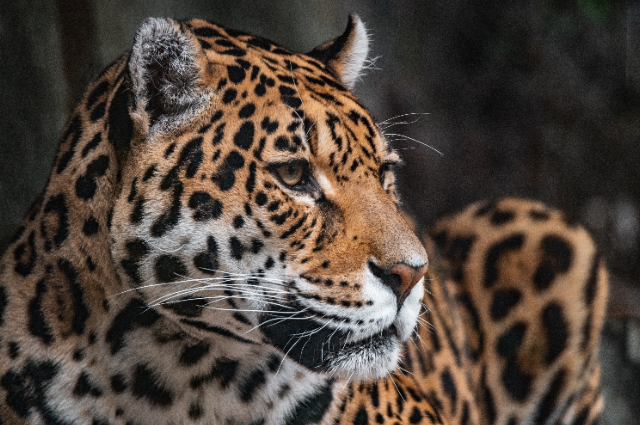
Introduction:
In the heart of the dense rainforests of Central and South America, a magnificent creature roams stealthily, leaving behind an air of mystery and awe. The jaguar, with its striking coat and powerful presence, has long captivated the human imagination. In the lush tapestry of the world's biodiversity, the jaguar stands as a symbol of power, mystery, and the untamed wild. World Jaguar Day, observed annually, is a testament to the global efforts to honor and preserve these magnificent creatures.
History and Significance of World Jaguar Day:
The inception of World Jaguar Day was a response to the alarming rate at which jaguar populations were declining. Recognizing the urgency, a consortium of wildlife conservationists and organizations came together to establish a day dedicated to the awareness and protection of jaguars. The initiative aimed to create a platform for dialogue, education, and action that would span across the countries jaguars call home. World Jaguar Day was established to raise awareness about the plight of the jaguar, the largest cat in the Americas and the third-largest feline after the tiger and lion. World Jaguar Day, celebrated annually on November 29th, was first initiated in 2018 by Panthera, a global wild cat conservation organization. This day aims to draw attention to the critical conservation needs of jaguars and promote efforts to protect their habitats. By designating a specific day for the jaguar, Panthera seeks to increase public awareness, foster international collaboration, and encourage governments and organizations to take action.The jaguar, known as "El Tigre" or "The Beast" in many indigenous cultures, holds immense cultural and ecological significance. Revered as a symbol of power, strength, and resilience, the jaguar has been an integral part of folklore, mythology, and spiritual beliefs in various communities. By celebrating World Jaguar Day, we pay homage to this iconic species and acknowledge its vital role in maintaining the delicate balance of ecosystems.
Understanding the Endangered Status of Jaguars:
The jaguar's endangered status can be attributed to a multitude of factors, primarily human-induced threats. Habitat loss due to deforestation, urbanization, and agricultural expansion has significantly impacted the jaguar's range. As forests are cleared, the jaguar's natural prey, such as deer and peccaries, diminish, forcing the big cat to venture into human settlements in search of food, leading to conflicts.Poaching and illegal wildlife trade pose another significant threat to jaguars. Their beautiful fur, teeth, and bones are highly sought after in the black market, driven by the demand for luxury products and traditional medicine. Despite international regulations and efforts to combat wildlife trafficking, the illegal trade continues to persist, pushing jaguars closer to extinction. Climate change also poses a grave threat to jaguars. Rising temperatures, altered rainfall patterns, and habitat fragmentation disrupt the delicate balance of ecosystems, affecting the availability of prey and the jaguar's ability to adapt. These environmental changes further exacerbate the challenges faced by this majestic species.
The Role of Communities and Governments:
The success of World Jaguar Day hinges on the involvement of local communities and governments. Conservation strategies are most effective when they incorporate the participation and support of those who live alongside jaguars. Community-based initiatives, such as eco-tourism and jaguar-friendly agricultural practices, are promoted to foster coexistence and provide sustainable livelihoods.Governments play a pivotal role by enacting and enforcing laws that protect jaguars and their habitats. International cooperation is also essential, as jaguars roam across national borders. Efforts such as the Jaguar Corridor Initiative aim to connect jaguar populations, facilitating genetic diversity and strengthening the species' chances of survival.
India's Efforts in Jaguar Conservation:
While the jaguar's natural habitat primarily lies in the Americas, India has made commendable efforts in contributing to its conservation. India's rich biodiversity and commitment to preserving endangered species have led to the establishment of several initiatives aimed at protecting the jaguar. One such initiative is the National Tiger Conservation Authority (NTCA), which oversees the conservation of not only tigers but also other big cats, including the jaguar. The NTCA works closely with local communities, wildlife authorities, and international organizations to develop conservation strategies, monitor populations, and combat illegal wildlife trade. Additionally, India has actively participated in international collaborations to conserve jaguars. By sharing expertise, knowledge, and resources, India has contributed to research and conservation efforts that extend beyond its borders. These collaborations have helped develop a comprehensive understanding of jaguar behavior, migration patterns, and habitat requirements, aiding in the formulation of effective conservation strategies.
Conclusion:
World Jaguar Day serves as a reminder of our collective responsibility to protect and conserve the jaguar, a species that embodies the beauty and resilience of our natural world. By understanding the history, significance, and importance of this day, we can actively contribute to the conservation efforts and ensure the survival of this iconic big cat.India's commitment to jaguar conservation, despite being geographically distant from its natural habitat, showcases the global importance of preserving biodiversity. By fostering international collaborations, sharing knowledge, and implementing effective conservation strategies, India sets an example for other nations to follow.To secure a future for the jaguar, it is crucial to address the root causes of its endangerment, such as habitat loss, poaching, and climate change. Through sustainable development, community engagement, and stringent law enforcement, we can safeguard the jaguar's habitat and ensure its survival for generations to come. World Jaguar Day is more than a date on the calendar; it is a movement that embodies the collective will to preserve one of the planet's most awe-inspiring creatures. Through education, collaboration, and action, this day contributes to the global endeavor to ensure that the silent roar of the jaguar continues to echo through the forests of the Americas for generations to come. It is a day to reflect on our shared responsibility to protect the natural world and to recommit to the cause of jaguar conservation. Let us honor these majestic animals by joining the chorus of voices advocating for their survival, on World Jaguar Day and every day.
